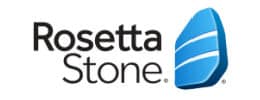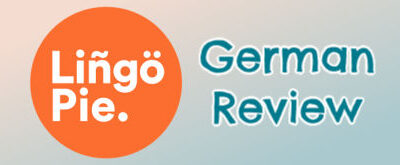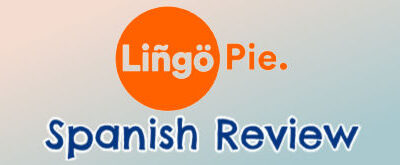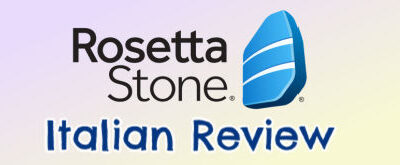Although Babbel and Duolingo have received more recognition over the past few years, Rosetta Stone has quietly revamped their language programs. In this review, we cover everything you need to know about Rosetta Stone, and whether their French course is the right fit for your budget and learning preferences.
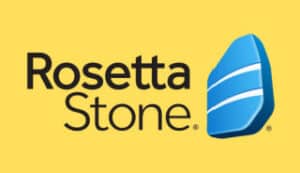
Rosetta Stone
- Multiple Subscription Options
- Money Back Guarantee
Pros
- Affordable subscription plans ($10-$15 per month)
- Ideal French course for visual learners (picture-heavy lesson format)
- Immersive learning environment facilitates the learning process
- Extra tools and resources (e.g. short stories, on-demand videos)
- Modern, user-friendly digital platform and mobile app
Cons
- Lesson format can become motnontous
- Grammar instruction is limited
- Verbal practice drills are basic in nature
How The Rosetta Stone French Course Is Organized
Let’s start by quickly outlining the structure of the Rosetta Stone French program. From a bird’s eye view, there are 20 learning units covering various thematic topics such as health, dining, and travel, for example.
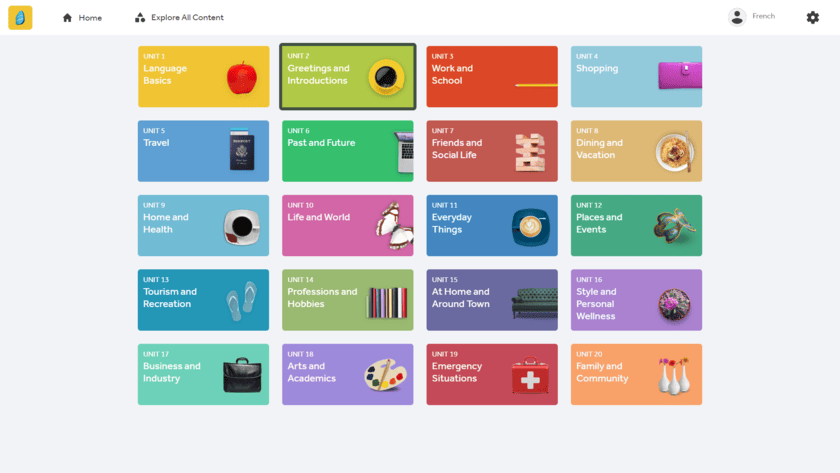
Then diving deeper, each unit contains four lessons, each divided into four sections – there’s a core lesson which takes around 30 minutes to complete, and then separate sections for pronunciation, vocabulary, and grammar, which each take around 5 to 10 minutes. In total, this adds up to about an hour per lesson.
Alternatively, when you first sign up for Rosetta Stone, you’ll be asked to answer various questions about your current skill level, reasons for learning French, etc. Following these questions, you can choose to follow a custom weekly study plan created by the company instead of the standard 20-unit path, so really the choice is yours at the end of the day.
The Rosetta Stone Method For Learning French
Next, let’s delve into the Rosetta Stone learning method and lesson format, and really the foundational curriculum of the Rosetta Stone French program is built around two principles – immersion and imagery.
First, unlike other French language apps, Rosetta Stone avoids using English translations, believing that continuous exposure to French expedites the learning process.
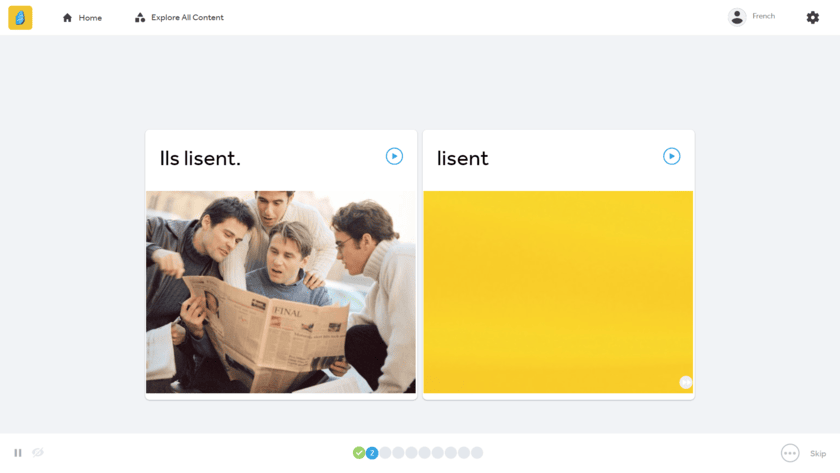
Then second, Rosetta Stone’s lessons are constructed using images in order to aid learners in associating new vocabulary with visual cues, thus providing context for words and phrases.
Those are the two big takeaways – an immersive French learning experience coupled with tons of images and pictures.
Rosetta Stone French Cost
Before we dive into the major advantages and disadvantages of using Rosetta Stone to learn French, let’s quickly compare the company’s subscription options with other French language apps.
Rosetta Stone provides consumers three choices: there are two monthly subscription options and one lifetime package. The monthly subscriptions range from approximately $10 to $15 per month, while the lifetime option costs around $400.
However, it’s relevant to mention that the lifetime plan includes access to all Rosetta Stone languages, not just French. Also, Rosetta Stone regularly offers sales and discounts as well. For example, the lifetime package is almost always on sale for less than $200 believe it or not.
Taking a step back, Rosetta Stone falls somewhere in the middle in terms of cost. Their subscription plans are a bit pricier than Babbel and Mondly, for example, but more affordable than Rocket French and Pimsleur.
Pros Explained
Now that we’ve covered how the Rosetta Stone French course is organized, their learning method, and pricing, let’s move into the advantages and disadvantages that our team discovered as we tested this program.
Good Fit For Visual Learners
First, as you can probably imagine given what we mentioned earlier about the lesson format, we believe Rosetta Stone is an excellent option for visual learners. The Rosetta Stone lessons rely heavily on pictures for almost every practice exercise, making them ideal for those who remember information best using visual cues.
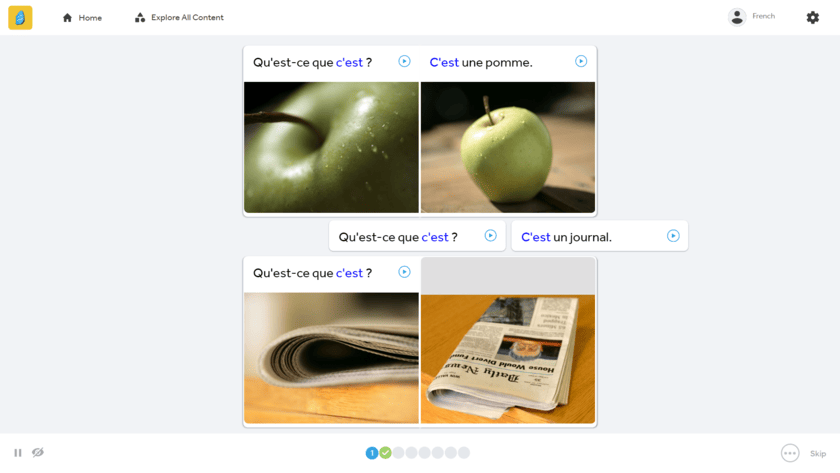
Plus, Rosetta Stone provides on-demand videos as well, further accommodating visual learners. Thus overall, the Rosetta Stone French program is visually engaging and well-suited for individuals who prefer a visual approach to language learning.
Immersive Learning Environment
The second advantage of using Rosetta Stone is its emphasis on immersive learning. And while we understand that immersive learning can be challenging, especially in the early stages when you lack a foundational understanding of the French language, our team believes that in the long term, this approach significantly accelerates the language acquisition process.
Continuous exposure to French words and phrases leads to rapid and more effective expansion of vocabulary in comparison to learning in a non-immersive environment, where reliance on translations can impede fluency development.
This is because fluency involves thinking and expressing oneself directly in the French language, rather than mentally translating between English and French. Therefore, from this perspective, we are strong supporters of Rosetta Stone’s immersive learning system.
Accurate Speech Software
Next, we’d like to spotlight Rosetta Stone’s TruAccent speech technology, which is something the company has invested significant resources in developing over the years to ensure the feedback on your pronunciation is quick, accurate, and user-friendly.
How it works is that throughout the Rosetta Stone lessons, you’ll be asked to engage in drills in which you listen and then repeat French words and phrases, allowing the company’s speech tool to assess and rate how accurate your pronunciation is.
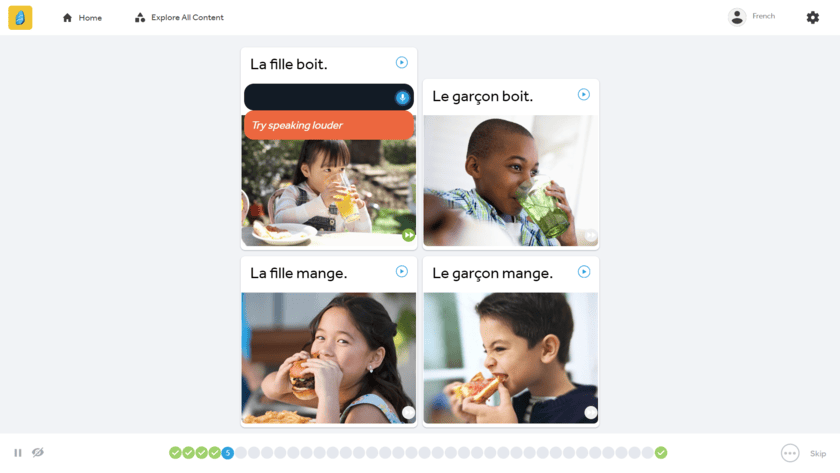
This is crucial because clear, accurate pronunciation not only aids your understanding and comprehension of native French speakers, but it also boosts your own self-confidence in using the language in social and professional situations.
While many language learning companies use some form of speech recognition software, Rosetta Stone’s technology is easily one of the superior ones our team has evaluated so far, along with Babbel French and Pimsleur French.
French Language Resources
Finally, the last advantage is that Rosetta Stone also grants learners free access to an array of additional tools and resources to help augment the language learning journey. These include the on-demand videos we alluded to earlier, phrasebooks, audio companions, short stories, and more.
Among these resources though, the short stories are the most helpful and effective. The stories just offer a refreshing break from the standard Rosetta Stone lessons, but perhaps the best part about them is the flexibility they offer. You can listen to a fluent French speaker read the story, you can read it yourself, or you can record yourself reading, and then judge your own pronunciation progress by listening back.
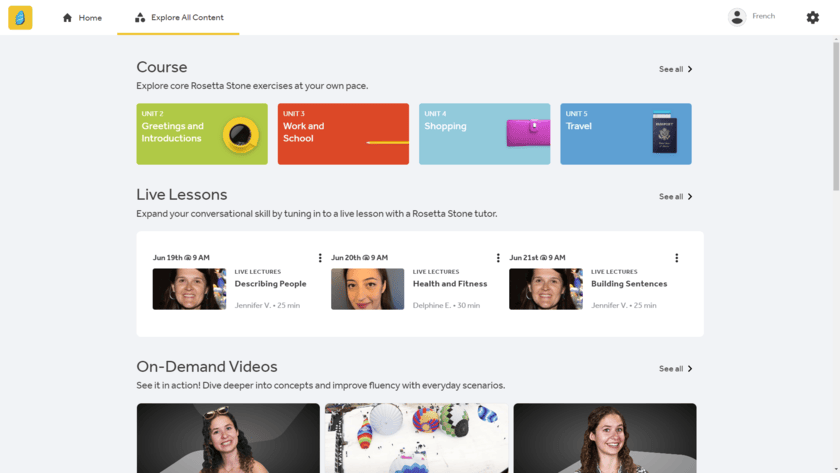
Plus, what’s cool is that the stories cover a wide range of topics, offering you not only the chance to expand your vocabulary, but also gain insights into French culture and traditions.
Then on top of that, Rosetta Stone also offers live lessons, classes, and tutoring services, although it’s important to note these are not free. However, for learners who have reached an intermediate level of fluency, these live sessions can be highly beneficial as they provide opportunities to communicate with your peers and participate in real-world conversations.
Cons Explained
Now that we’ve discussed the advantages of using Rosetta Stone to learn the French language, it’s only fair we also discuss the disadvantages as well. That way, you have an impartial view of what Rosetta Stone has to offer.
Issues With Lesson Format
The first disadvantage is that the Rosetta Stone lessons can become monotonous and repetitive from time to time, as they primarily consist of the same half dozen drills and exercises over and over. This is where the supplementary resources and tools we previously highlighted become essential.
Trust me, you’re going to want to take a break from the standard lessons, and dive into the other tools for a change of pace. Therefore, if you are quick to lose interest, other French language apps such as Babbel or Memrise might be more suitable since their lessons offer a greater variety of instructional drills and exercises.
Basic Verbal Practice
The next drawback with Rosetta Stone pertains to its speaking exercises, and while we acknowledge the quality of the company’s TruAccent speech software, our concern lies more so with the actual exercises.
To be quite frank, they’re just rudimentary, and do not advance beyond a beginner level, as they mainly involve listening and repeating words and phrases in a vacuum. Or to put it differently, the speaking exercises lack context, pressure, and recall, which are essential for learning to use the language in practical situations.
After all, learners may struggle to grasp how words and phrases are utilized in various settings without proper context. In short, there’s no question that Rosetta Stone could improve the quality and depth of their verbal practice drills.
Limited Grammar Instruction
The final downside we want to address concerns grammar. Unlike many other language learning programs, Rosetta Stone does not offer clear-cut grammar instruction.
Instead, the company encourages learners to absorb grammar intuitively through exposure and repetition with the goal being that you naturally start to recognize and internalize grammar patterns yourself. Now to be fair, this approach has both proponents and detractors.
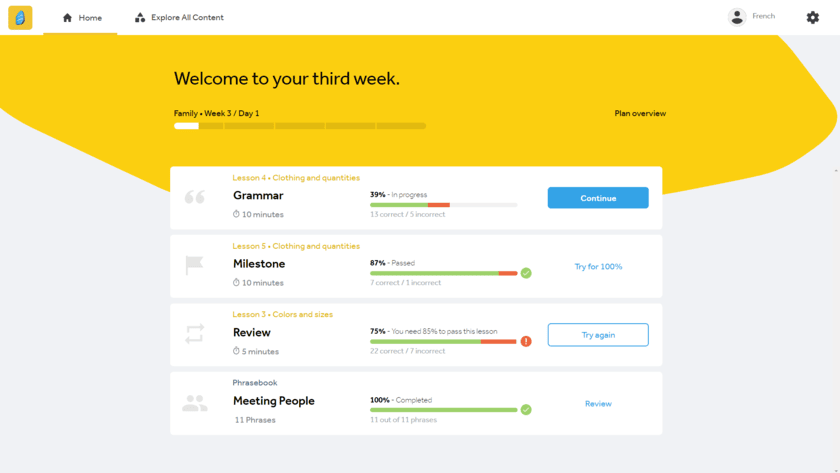
Some polyglots and language learning programs advocate for direct instruction, arguing that clear explanations of grammar rules and structures help learners comprehend the language’s framework, making it easier to understand and apply new concepts as they learn them.
Conversely, proponents of natural grammar acquisition, such as Rosetta Stone, contend that focusing on memorizing rules and conjugation charts can impede your intuitive feel and understanding of the language.
Therefore, ultimately, the choice between these approaches depends on your specific individual preferences. If you prefer straightforward and explicit grammar instruction, a program like Rocket French might be more suitable. On the other hand, if you prefer to learn grammar naturally and don’t want to waste time with conjugation charts, Rosetta Stone is a fine option.
Verdict: Is Rosetta Stone French Good?
After having used and evaluated the program, the answer to the question is yes. Our team really likes the company’s immersive learning framework, their lesson format is perfect for visual learners, their speech software is outstanding, and they provide a plethora of different resources and tools to supplement their standard lessons. Plus, it doesn’t hurt that their subscription options are fairly affordable.
Really, the only circumstance in which we would steer you away from Rosetta Stone is if you consider yourself an auditory learner, or you’re looking for more robust verbal practice in order to begin holding basic French conversations faster. Other than that, we think Rosetta Stone is a fine program for learning French.
The Rosetta Stone French program costs around $10 to $15 per month on average. Alternatively, you could purchase a lifetime plan from Rosetta Stone for around $400 (though it can often be found on sale for much less).
The Rosetta Stone French course is comprised of 20 learning units in total. Each learning unit covers a different thematic topic and includes several full-length lessons.
In order to complete the Rosetta Stone French course, it will likely take you between 80 to 120 hours. However, if you include the company’s other language resources and study materials, it will likely require a 200 hour commitment.
The Rosetta Stone French program is more basic in nature. If you complete the entire course, expect to reach an intermediate level of fluency.

